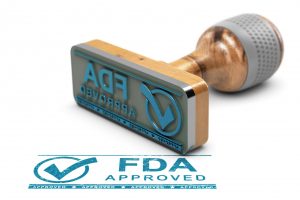At some point in your life, a medical device will likely become a necessary part of your medical care. You may need external items such as hearing aids, blood glucose meters, insulin pumps, or feeding tubes. You may also need the help of surgically implanted medical devices like artificial hips, heart pacemakers, breast implants, spine screws, rods, artificial discs, intrauterine devices, metal screws, pins, plates and rods, artificial knees, or coronary stents. No matter what type of medical device you need, you deserve safe devices of only the best quality that are responsive to technological updates. As a patient, you should have the right to make a fully informed decision about whether you want to use a newer or older version of a particular medical device. The FDA is now considering making changes to its (infamous) 510(k) medical device approval process.
FDA Pressures Medical Device Manufacturers to Utilize Newer Technologies
You only have to look at the evolution of cell phone technology to appreciate the abundance of technological changes that have occurred over the past decade. So, why should you be provided with the medical device equivalents of flip phones? That’s one of the key focuses of the proposed new changes to the 510(k) Approval Program the U.S. Food and Drug Administration (FDA) which would be incorporated in 2019. The 510(k) Approval Program, put in place originally in 1976, has provided an approval “short-cut” for medical devices which are based on medical devices currently on the market. I have written about the 510(k) process often on this site. The medical device currently on the market, upon which the new product is based, is known as a “predicate device.” Historically, there have been no restrictions concerning the age of the predicate device. This is about to change.
We don’t want our FDA approval programs to be so burdensome as to stunt meaningful growth and advancement in medical technologies. However, we must have safe medical devices on the market that are based on more recent predicates in order to encourage the incorporation of modern safety features. Currently, the FDA is considering whether to make information about devices and manufacturers using predicates older than a decade available to the public. The idea behind these notifications would be to place pressure on medical device manufacturers to utilize newer predicate devices. As some industry critics have noted, in many cases new medical devices are approved under 510(k) based on older “predicate devices” that have proven to be problematic and may no longer even be manufactured and marketed.
Would Publicizing Information on Older Predicate Devices Protect Consumers?
I don’t know. I have never been comfortable with the ease with which medical devices reach the market through the 510(k) process. While I welcome the effort to reform 510(k), these latest changes are just a modest start. The motivation behind the FDA’s efforts to bring the 510(k) Program up to speed with modern developments is well-intentioned. Public disclosure of those utilizing old predicates in order to expedite the release of medical devices allows patients and their doctors relying on the medical devices to make informed decisions about what medical devises they wish to incorporate into a treatment plan. But, will publication of this information, alone, put enough pressure on the medical device market to modernize medical devices? I doubt it. More aggressive methods, such as completely disallowing product approval short-cuts for devices based on predicates older than a decade, should be considered. In fact, in the interest of consumer safety, this country needs a robust debate on whether the 510(k) process should be eliminated altogether.
Still, because it shines a light on the flawed 510(k) process, the new proposed measure by the FDA is a small step in the right direction.
 North Carolina Product Liability Lawyer Blog
North Carolina Product Liability Lawyer Blog



